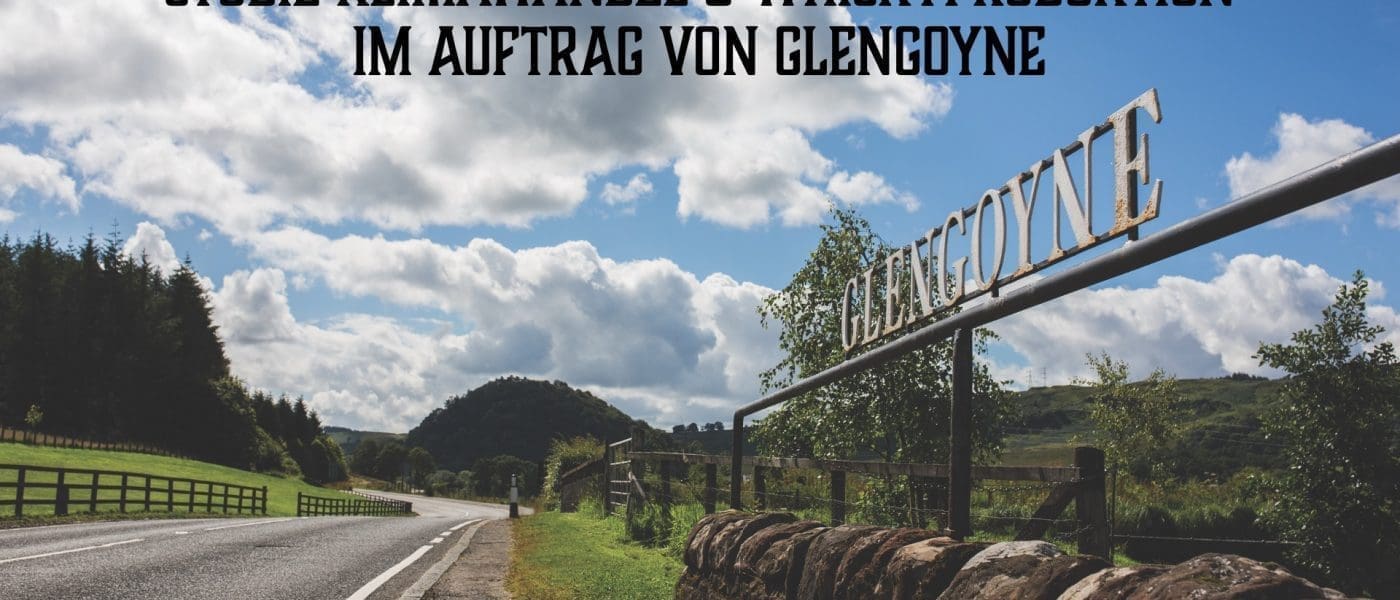PR: Studie Klimawandel und Whiskyproduktion
Die neue Studie im Auftrag der Glengoyne Distillerie gibt Einblick, welche Wirkung der Klimawandel auf die Whiskyproduktion in den nächsten 50-100 Jahren haben wird. Laut der Studie zu Klimawandel und Whiskyproduktion werden nicht nur Getreide und Wasser ein Problem bis zum Jahr 2080 werden.
Studie Klimawandel und Whiskyproduktion im Überblick
- Autoren: Professor Mark Maslin und Forscherin Carole Roberts von dem University College London
- Auftraggeber: Glengoyne Distillery
- Inhalt: Wie wird der Klimawandel die Scotch Whisky Produktion in den nächsten 50-100 Jahren beeinflussen
(how climate change will impact Scotch Whisky production in the next 50 – 100 years) - Der Report ist hier in voller Länge erhältlich und erklärt den Zusammenhang zwischen Klimawandel und Whiskyproduktion
Einen Eindruck von Glengoyne bekommst Du hier: Destillerietour bei Glengoyne – mit Fotoerlaubnis. Mehr Details auf der Glengoyne Webseite.
(Pressemitteilung, Glengoyne / johndoehub)
A DRAM GOOD REASON TO CARE ABOUT CLIMATE CHANGE
- Latest climate change impact study commissioned by Glengoyne Distillery reveals the potential impact on Scotch whisky production over the next 50-100 years
- Barley and water shortages could limit production in many distilleries by 2080
- Distillery is commemorating 10 years of its own wetlands ecosystem with special release
As one of Scotland’s main exports1, Scotch whisky is enjoyed the world over. Now, a new study commissioned by Glengoyne Highland Single Malt Scotch Whisky has revealed we shouldn’t take a good dram for granted, as projected temperature increases and changes in rainfall patterns threaten distillery production over the next fifty years.
Climate researchers from University College London found impending heat and drought stress caused by global warming could drastically impact the volume and quality of spring barley in Scotland. 800,000 tonnes are required annually in Scotch Whisky production and a reduction in yield, as seen in 2018, could cost the industry up to £27million a year.
With a decline in summer rainfall of up to 18% and a 2.0˚C annual rise in temperature by 2080, they also found that summer-droughts, which halted production at many distilleries across Islay, Perthshire, and Speyside in 2018, would likely occur with much greater frequency going forward3.
Ahead of COP 26 in Scotland, Glengoyne commissioned the report to highlight the pressing need for all industries and individuals to come together to combat climate change.
As one of Scotland’s most awarded distilleries for sustainability initiatives4, Glengoyne is announcing the launch of a special new release, The Wetlands Single Cask, which recognises the distillery’s ongoing relationship with the Wildfowl and Wetlands Trust (WWT) which began in 2011.
The release commemorates 10-years since the Scottish whisky distillery became the first to adopt a wetlands facility for liquid waste, with a percentage of profits going directly to continue the climate emergency work being done by the conservation charity.
Wetlands can help drastically slow down climate change, storing twice as much carbon as all the world’s rainforests combined – but they too are under considerable threat from climate change.
As the first Scottish distillery to adopt a wetlands facility for liquid waste in 20115, the distillery and brand will increase their support of WWT’s initiatives as part of a broader partnership that will for the next 3 years be focused on supporting the protection of Barnacle Geese at Caerlaverock, as well as taking part in WWT’s Blue Recovery which aims to create 100,000 hectares of healthy wetlands across Scotland.
Barbara Turing, Brand Manager at Glengoyne Highland Single Malt, said: “The threat of climate change is very real, and we all have a role to play in combatting its effects. At Glengoyne, we still have so much more to do but we are committed to reducing our own impact on the environment and working with the Scotch Whisky Association to achieve their net zero emission target by 2040.
“We’ve been on an incredible journey over the last ten years – finding ways to use water more efficiently, introducing renewable sources of energy and using a local anaerobic digestor for 100% of our liquid waste. Our partnership with the WWT has been at the heart of our sustainability work and we want to continue to support the valuable work they do. So, when customers raise a dram of this special release, they’ll know they are supporting the important and necessary work of the charity.’
Climate change in the next 50-100 years could also threaten to alter the flavour profile of whisky in Scotland. Stages of its production, including malting, fermentation, distillation, and maturation, have all been developed to suit the temperate maritime climate of the area. Warmer air and water temperatures, the report found, would all have the potential to lead to inefficient cooling in traditional distilleries, creating challenges for conserving the character, consistency, and quality of the liquid.
Carole Roberts, lead author and climate change researcher at University College London, said: “There’s an assumption that Scotland is wet, rainy place with a constant water supply. Climate change is changing when and where it rains, and this will create shortages and change the character of the water – effecting our favourite drams – so planning is essential to protect our whisky.”
Professor Mark Maslin, climate change professor at University College London who worked on the report, said: “The work Glengoyne is doing to reduce their carbon emissions and protect whisky production from climate change is essential. But the whisky industry is just one fish in a big pond, and we need government support, investment, and infrastructure for all of us to be net zero emissions as soon as possible.”
1 Scotch Whisky contributes over £5 billion annually to the UK economy (The Scotch Whisky Association, 2020)
2 Annual temperatures in Scotland will rise by up to 2.0˚C
3 Droughts would occur every 20 years instead of every 40 years by 2050
4 Glengoyne has won many awards since introducing the new packaging and has been recognised as an industry leader for their achievements in sustainability. See notes to editors.
5 Glengoyne introduced its wetlands facility in 2011, treating wastewater slowly and naturally in reed beds that filter and cleanse waste. The wetlands have helped reduce waste by 25% and are home to 14,500 plants and abundant wildlife, fostering biodiversity and encouraging wildlife in the local area.





